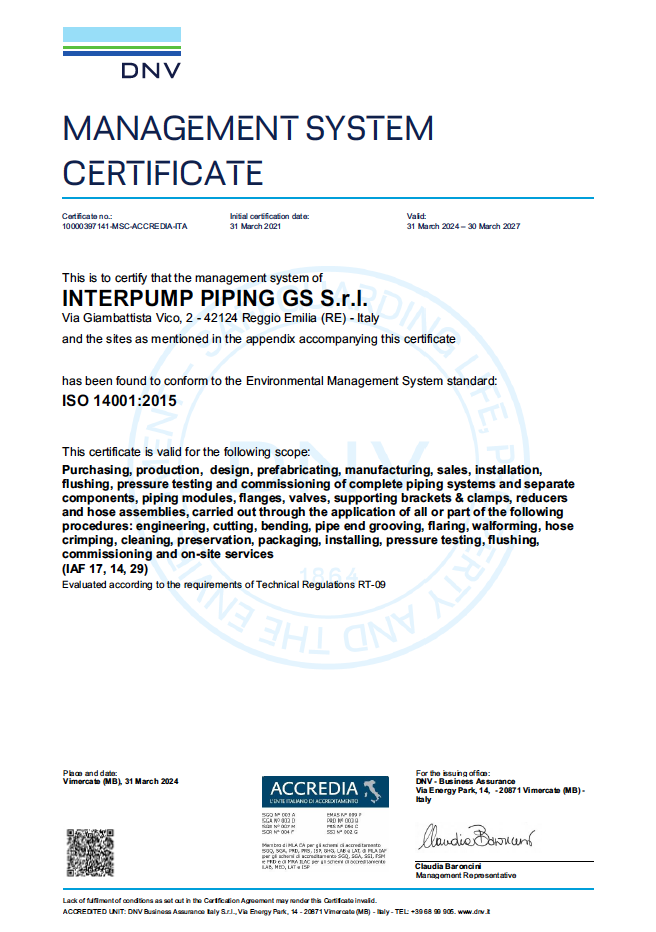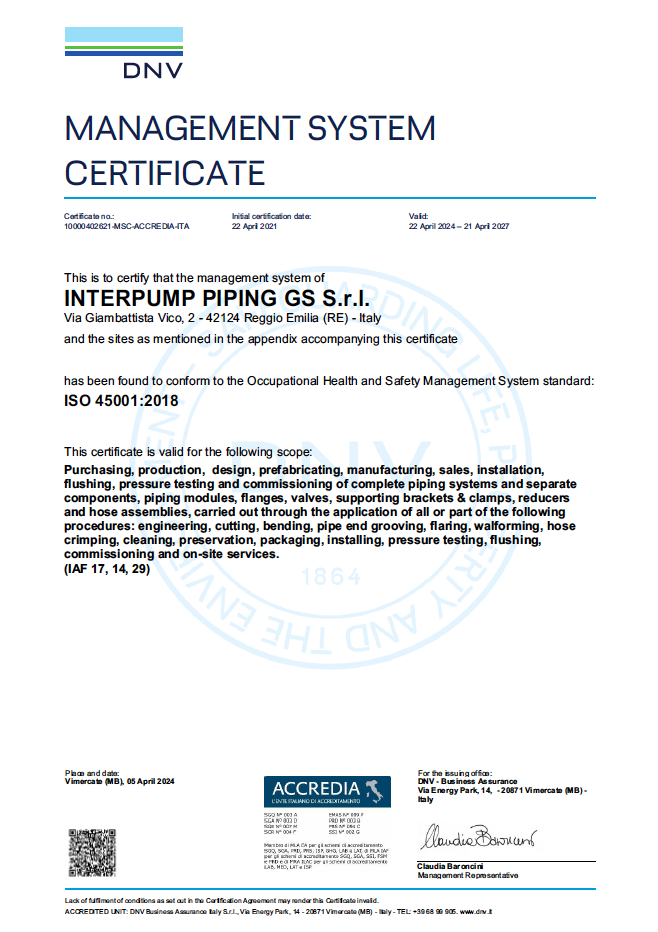Quality
Ensuring the highest quality of products and services to our customers is always a priority. Through careful quality management of both in-house operations, as well as suppliers and subcontractors, GS-Hydro makes sure our products are in-line with the most restrictive standards.
Type Approvals
In order to satisfy client requirements across various segments and different applications,
GS-Hydro made sure to be approved by all renowned certification bodies.
GS-37° and GS-90° Flare Flange Systems as well as the GS-Retain Ring Systems are approved by the following classification societies:
DNV GL - DNV GL Group
LR -Lloyd's Register of EMEA
ABS - American Bureau of Shipping
BV - Bureau Veritas
RINA - Registro Italiano Navale
RMRS - Russian Maritime Register of Shipping
NKK - Nippon Kaiji Kyokai
CCS - China Classification Society
KR - Korean Register
You can download our type-approvals from the download-page.
The GS-Piping Connection Systems are also approved for use in offshore by NORSOK (piping specifications IS70, IS80, GS70 and JS80).
What is more, GS-Products that hold the type approvals are tested according to IACS (International Association of Classification Societies Ltd) requirements – combined vibration & pressure pulsation test and the fire endurance test.
Vibration & Pressure Test
GS-Products meet IACS (International Association of Classification Societies Ltd) test requirements.
IACS Combined Vibration & Pressure Pulsation Test
P 2.11.2.2.2/3
- In order to establish the capability of the mechanical joint assembly to withstand fatigue stress
- The specimen is to withstand a minimum of 10 million cycles of mechanical load
- The vibration test is carried out simultaneously with the pressure pulsation test, where impulse is to be raised from 0 to 1,5 times the design pressure
- The number of pressure peak cycles is minimum 500.000
Fire Endurance Test
GS-Products meet IACS (International Association of Classification Societies Ltd) test requirements.
IACS Fire Endurance Test
P 2.11.5.5.6
- In order to establish the capability of the mechanical joint assembly to withstand the effects of fire
- The specimen is subject to fire for 30 minutes at a temperature of 800°C, while water at the design pressure of the joint is circulated inside
- After the testing, the specimen is subject to a hydrostatic tightness test





